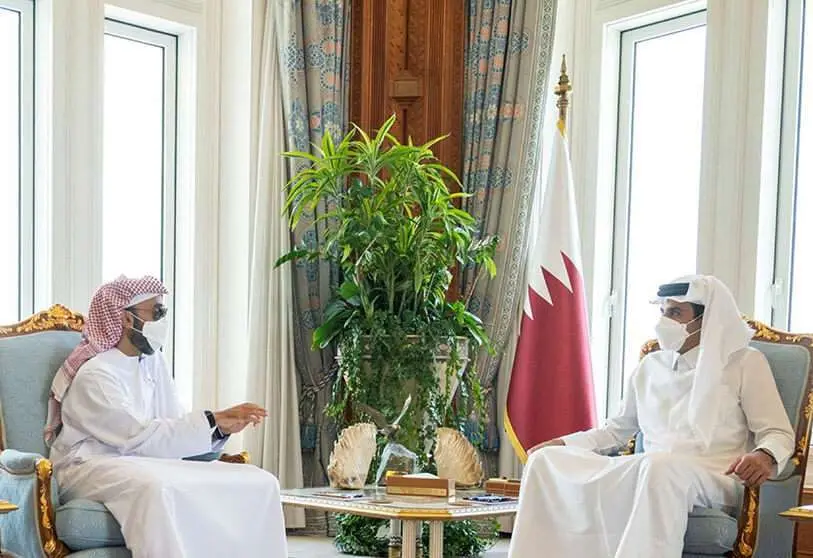Emirates and Qatar consolidate relations since the end of the blockade

It's official, a new chapter in relations between the Gulf states is opening. UAE national security adviser Sheikh Tahnoun bin Zayed al-Nayhan, brother of the Emirates' de facto ruler, held talks with Qatari Emir Tamim bin Hamad al-Thani in Doha, where they discussed strengthening cooperation, particularly in economic and trade areas and investment projects. This is the first meeting since the signing of the Al-Ula agreement, which ended a three-and-a-half year blockade of Qatar by the UAE, Saudi Arabia, Bahrain and Egypt. The softened rhetoric over the three-year dispute comes amid a Kuwaiti-sponsored de-escalation that restores diplomacy and multilateralism after a turbulent period of mutual accusations and even the danger of war.
The rift between the Arab quartet and Qatar was one of the most serious diplomatic crises between the Gulf countries in recent years. Riyadh announced on 5 June 2017 the severance of relations and the closure of all land, sea and air ports to all means of transport coming from or going to that country. Egypt, the United Arab Emirates and Bahrain followed in the footsteps of their neighbours and announced the severance of relations with Doha, an announcement that was accompanied by a series of economic measures, including the aforementioned border closures and the imposition of restrictions on the movement of Qataris in these nations.

Qatar was placed under a blockade from 2017 onwards under the quartet's accusations of supporting cross-border terrorism and the Muslim Brotherhood organisation, described by several nations as terrorist. Since then, relations of all kinds have been cut off and the country has been isolated in an attempt to bring about a change in its foreign and financial policy, which had brought it closer to new partners such as Turkey and Iran, international actors singled out for destabilising parts of the Middle East and North Africa with their belligerent stance. After the Al-Ula declaration, Qatar was freed from the blockade it was subjected to by its neighbours, not least because of the good relations between Iran and Qatar, so the lifting of the blockade and the return to normality in the Arabian Peninsula may be a first step in that direction.
The presence of the UAE in Qatar would be evidence of a rapprochement that is already underway. It now appears that this trend may be changing towards Qatar; a change represented by Sheikh Zayed al-Nayhan's attendance in Qatar. All of this is aimed at pacifying the Middle East region, one of the main objectives of recent political movements that have led to the establishment of diplomatic ties between various Arab countries such as the Emirates and Bahrain and Israel under the auspices of the United States.

The recovery of relations between the countries, as well as the establishment of diplomatic relations between Israel and several Arab countries, are the new geopolitical realities of the Middle East. In a region torn apart by the oppressive actions of autocratic and police states, wracked by terrorism and undergoing economic and demographic transformation, especially due to the declining future of oil, an option that restores multilateralism and diplomacy is always good news.
Still, it is too early to say whether these countries will agree on issues such as Turkey and Iran where the interests between the different countries are at odds with each other. Or what will happen with Qatar's support for the Muslim Brotherhood, an organisation branded as terrorist by countries such as the United Arab Emirates. It is clear that this is a step forward in the relationship between the Gulf countries, but there are still many unknowns to be resolved.








